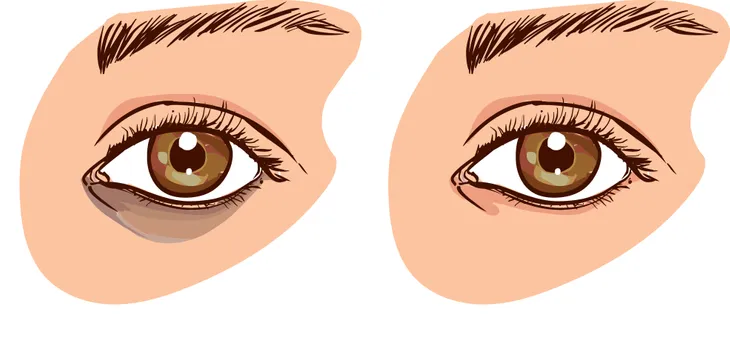- Our adrenal glands sit on top of the kidneys and push out hormones like cortisol, adrenaline, and testosterone.
- People with AFS have adrenal glands that work overtime, pushing them to wear out and not produce enough hormones.
- This can lead to a number of symptoms including weight gain, fatigue, salty cravings, and poor sleep.
- While many alternative medicine experts push adrenal fatigue syndrome, there is no scientific evidence this condition exists.
Feeling constantly run down and can’t seem to even muster the energy to take another step? You might have what some experts call adrenal fatigue syndrome (AFS). This is not to be confused with adrenal deficiency syndrome which is a medically proven condition. AFS can be brought on by prolonged stress and other factors.
While medical professionals still debate the existence of adrenal fatigue, the name might already spark some interest considering most of us can relate to feeling tired. Luckily, there are ways to treat or at least manage the symptoms of AFS. Before we get into that, here’s a list of the most common signs, plus a look into whether or not it’s to blame for unexpected weight gain…
You’re Excessively Tired
We all have bouts of time where we feel worn out, but for people who struggle with AFS, it leaves them feeling tired even when they haven’t done anything that requires energy, according to AdrenalFatigue.org.
Being in a constant state of fatigue can make a person feel run down. You might have trouble getting up in the morning, even after a sufficient sleep. This excessive tiredness will also make small or mundane tasks feel overwhelming because there’s just no energy to tackle them.
Salty Cravings
According to LiveStrong, craving salty snacks could be a warning sign that the adrenal glands are tapped out. However, salt can actually be helpful in healing the overworked glands and curbing the symptoms, notes the source.
The reason people with AFS crave salt is because they have low sodium and aldosterone (a steroid hormone) levels in the body, says the source. To boost these levels, try adding a teaspoon of salt to filtered water in the morning. This should provide a much needed kickstart to begin the day!
Evening Energy
Those with adrenal fatigue tend to feel more awake in the evening hours — anytime after 6 p.m. The Association of Women for the Advancement of Research and Education (AWARE) explains that this evening energy is all part of the energy pattern associated with AFS. This consists of fatigue in the morning and more alertness around lunch, then a lull in the afternoon.
This happens because there’s a lull in cortisol (stress hormone) production in people with AFS. The lull is followed by a gradual recovery in the evening with another “wall” of fatigue around 9 p.m. People with this condition tend to do their best work in the evening.
You Feel Dizzy Standing Up
This is a lesser symptom of AFS, but it can happen. Some people with AFS will feel light-headed after standing up too fast. This could even lead to a loss of balance when walking or standing.
The dizziness might be a result of low blood pressure when returning to a standing position, according to experts. Blood pressure often rises when people are upright, but if this doesn’t happen it could mean the adrenal glands are overtaxed.
 Pheelings media / Shutterstock
Pheelings media / ShutterstockLack of Tolerance for Stress
Since one of the causes of AFS is prolonged stress, it makes sense that more stress sends the adrenal glands into overdrive. This causes a fight or flight response to even the slightest stressful situation. This makes it more difficult to tackle everyday stresses that we all encounter, such as those in the workplace or even just mundane tasks like running late to an appointment.
According to AdrenalFatigue.org, stress from long periods of high cortisol in the body are often followed by a dip in cortisol due to overstimulation. This makes the body less prepared to deal with stress, leading to a ‘burnout’ that decreases a persons overall tolerance to life events. This can have a major impact on their social life as they tend to withdraw from social situations. Small adjustments to lifestyle can help assist in recovery.
You’re Sick Often
Since the stress hormone cortisol is also a natural anti-inflammatory, having an adrenal system that is working overtime can actually raise those cortisol levels too high and block your immune responses, explains AdrenalFatigueSolution.com.
Conversely, if cortisol levels drop too low, it makes a person more prone to overreact to pathogens and end up with inflammation or even an auto-immune disease, notes the source. People with AFS tend to have overly high levels of cortisol and lower levels as the condition drags on.
Brain Fog
It shouldn’t be all that surprising that someone who feels excessively tired, isn’t sleeping well. Also, if someone is feeling stressed or overly tired, they’re likely not mentally performing to the best of their ability. Adrenal fatigue syndrome creates a feeling that’s described as “brain fog” which mainly affects a person’s memory. It makes it hard for them to retain and recall information. It can affect work, school, and everyday life.
MindBodyGreen.com says that someone experiencing brain fog due to adrenal fatigue syndrome will begin to forget even the most basic things and will constantly be in a state of confusion which leads to a decrease in their productivity or even a potentially serious accident.
Decreased Libido
A person’s sex drive can be affected by a lot of different things, lack of sleep, stress, hormones, etc. These things can either increase or decrease it, and it’s normal for someone to go through different phases or changes on a frequent basis.
One of the symptoms of adrenal fatigue syndrome is a decreased sex drive. According to MindBodyGreen.com it’s because the body is lacking the proper nourishment it needs to be healthy and it hasn’t been able to rest and restore. This is probably due to some of the other symptoms of adrenal fatigue syndrome like lack of sleep. “Stimulants flush away vital minerals necessary for libido, and you’ll need to adopt a nutrient-dense diet to replace them,” says the source.
Dark Circles Under the Eyes
Dark circles under the eyes is normal for people who don’t get lots of sleep. However for people with AFS, it happens to them as a result of “stressors like fatigue, emotional stress, or dehydration (which is tough on the body) disrupt healthy circulation,” writes Well + Good. This all shows through the thin under-eye skin.
Keep a close eye on those dark circles. Sandra Chiu, a Brooklyn acupuncturist, skin expert, and the founder of Treatment by Lanshin tells the source that if dark circles appear to be sunken or hollow, it could mean there’s a bigger problem. Dark circles like that could be a sign of issues with the kidneys which requires a trip to the doctor.
Your Cycle is All Out of Whack
While a menstrual cycle is specific to women, men can also be affected with their thyroid. Alisa Vitti, the founder of hormone-regulating practice Flo Living and author of WomanCode tells Well + Good that adrenal fatigue syndrome can affect a person’s thyroid and menstrual cycle. This is because the endocrine system contains the adrenal glands. According to Vitti, the endocrine system of someone with AFS faces “unprecedented exposure to endocrine-disrupting chemicals.”
Vitti advises treating a hormonal imbalance with lifestyle changes like eating healthier, stress relieving practices, and more sleep. “You can’t spot-treat your hormones. We’re so accustomed to that in Western medicine — penicillin for an infection, ibuprofen for a headache.” You can change a hormonal balance with lifestyle changes and evaluating what chemicals are going into the body on a daily basis.
Inability to Sleep
Well + Good talked to California-based acupuncturist Neka Pasquale, founder of Urban Remedy who explains that in a perfect world we’d all get a good nights sleep and have lots of energy the next day. This isn’t possible for people who’s hormones are all out of whack. This is because they spend most of their day bouncing around from thing to thing, never getting rest and living in a state of constant stress. It’s a vicious cycle because it’s also what makes it hard for them to fall or stay asleep.
The solution that Pasquale provides is to go to sleep before 10 p.m. Yes, we understand that it’s probably going to feel ineffective since it’s hard to fall asleep, but even for those who don’t fall asleep immediately or aren’t tired, the body will learn to start melatonin production which encourages a healthy sleep rhythm.
Digestive Issues
You might be surprised to learn how in tune our gut is with our overall health. You can learn a lot about the state of a person’s health by what their digestive system is doing. “If your body isn’t getting what it needs, or if you’re eating in a way that creates drastic blood sugar fluctuations, it’s ‘punishing to the adrenals,'” says Chiu to Well + Good. The digestive system is greatly affected by the food we eat. And for someone with AFS, that’s likely lots of salty food.
The additional stress can also cause stomach issues which leads to bloating and overall poor digestion. Chiu tells Well + Good that patients with adrenal fatigue should “cut out processed foods, refined sugar, refined wheat, and gluten products.” Replace these with more nutritional, well-rounded products like fruits, vegetables, and good fats.
Does Adrenal Fatigue Syndrome Cause Weight Gain?
There is conflicting evidence surrounding this topic. Since AFS is not a proven medical condition, there’s no scientific evidence to suggest it causes weight gain. However, hormones are one of many factors that can influence body weight. High levels of cortisol can promote overeating, says Healthline.
AFS is said to alter the bodies cortisol levels which could lead to overeating. According to Healthline, when cortisol levels are elevated for a long period of time it can cause weight gain. Also, a common symptom of AFS is craving salty foods, which we all know are unhealthy. A diet high in sodium will cause weight gain.
 Monkey Business Images / Shutterstock
Monkey Business Images / Shutterstock













